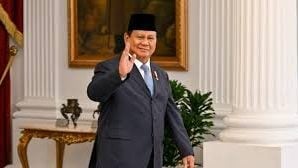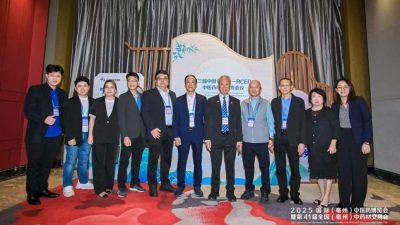
As geopolitical strife in the Middle East intensifies, the spotlight on the Regional Comprehensive Economic Partnership (RCEP) and its impact on Malaysia has brightened. With crucial global trade routes, especially those pivotal for oil and gas, potentially at risk, RCEP emerges as a key stabilizer for Malaysia’s economy. This pact could shield the nation from the economic unpredictability that often accompanies geopolitical conflicts, ensuring steadiness in trade and investment flows.
RCEP stands as the world’s largest free trade agreement, encompassing 15 Asia-Pacific nations. It represents about 30% of the global population (2.3 billion people) and 30% of the world’s economy and trade volume. Lauded as a landmark since its inception, RCEP is seen as a driver of increased economic integration and support for its member economies. For Malaysia, striving to strengthen its trade connections and diminish economic vulnerabilities, this partnership promises substantial boosts in economic resilience and growth, serving as a strategic defense against worldwide economic fluctuations.
Amidst escalating conflicts in the Middle East, the security of key maritime pathways, including the Strait of Hormuz and the Suez Canal crucial for oil shipments, hangs in the balance. In 2022, according to the International Energy Agency, Malaysia’s crude petroleum imports amounted to US$12.2B, with significant volumes coming from Saudi Arabia, the United Arab Emirates, Brazil, Kuwait, and China. Any disruption in these supply lines could profoundly affect Malaysia’s energy security and overall economic stability. Hence, it is crucial for Malaysia to seek alternative markets and diversify its trade to secure a steady inflow of vital resources.
The importance of RCEP is underscored by its role in providing varied trading opportunities for Malaysia, extending beyond the volatile markets of the Middle East. From January to March 2024, exports to RCEP countries accounted for 29% of Malaysia’s total exports, summing up to approximately RM203 million. This statistic highlights RCEP’s capacity to mitigate risks associated with dependence on a single region. By fortifying trade relations within the Asia Pacific, Malaysia not only safeguards itself against potential supply disruptions but also opens up avenues for diversifying exports and boosting industrial cooperation.
Moreover, RCEP grants Malaysia access to vast markets like China and Indonesia, with populations of 1.4092 billion and 275 million, respectively. This economic integration could be particularly beneficial for Malaysia as it navigates the complexities of global trade amidst Middle Eastern instability. The simplified trade regulations and unified standards under RCEP are likely to enhance operational efficiency and reduce costs for Malaysian businesses, thus amplifying their export capabilities.
As the Regional Comprehensive Economic Partnership (RCEP) gains momentum, its significance for Malaysia’s economic strategy is poised to intensify, especially with ongoing tensions in the Middle East. The immediate advantages of RCEP for Malaysia are evident, yet the long-term effects on its economic landscape are still unfolding. Engaging robustly with this extensive trade agreement is crucial for Malaysia as it seeks to navigate and shape its economic destiny in a rapidly evolving global environment. To harness the full potential of RCEP, Malaysia can adopt four strategic approaches:
1. Raising the Bar on Product Standards: By boosting the quality and standards of its products to meet international benchmarks, Malaysia can leverage RCEP to its advantage. This means embracing best practices in manufacturing, enhancing quality controls, and adhering to environmental and safety standards that prevail across other RCEP nations. For example, Malaysian electronics and agricultural goods could undergo stringent testing and certification to meet top-tier quality demands, enhancing their competitiveness and potentially fetching higher market prices.
2. Targeting High-Demand Sectors: Malaysia should pinpoint and invest in sectors expected to experience a demand spike from RCEP countries, such as digital technology, renewable energy, and healthcare. Capitalizing on these sectors could position Malaysia as a key player within RCEP, attract foreign investment, and create new employment opportunities. The rise of digital services and e-commerce, along with a shift toward sustainable energy within RCEP, presents lucrative opportunities for growth.
3. Cultivating Technological Partnerships: By forging technological collaborations with RCEP counterparts, particularly with tech leaders like China and Singapore, Malaysia can facilitate a cross-border flow of new technologies and innovations. Initiatives could include joint research ventures, technology exchange agreements, and innovation hubs that encourage collaborative development among businesses from various countries. Such efforts would enable Malaysian enterprises to integrate advanced technologies, boosting productivity and competitiveness.
4. Investing in Human Capital for New Market Challenges: To capitalize on RCEP’s opportunities, Malaysia needs a workforce that is skilled and versatile, ready to meet the challenges of a dynamic global market. Prioritizing education and training in essential future skills, such as digital literacy, language proficiency, and intercultural communication, is vital. Additionally, vocational training programs tailored to meet industry-specific demands will equip the workforce with necessary skills, enhancing their competitiveness on both local and international stages.
By strategically deploying these approaches, Malaysia can not only reinforce its economic stance within RCEP but also ensure sustained growth and resilience against the backdrop of global economic shifts.

(Goh Lim Thye Department of Economics Faculty of Business and Economics Universiti Malaya)
ADVERTISEMENT
ADVERTISEMENT






































